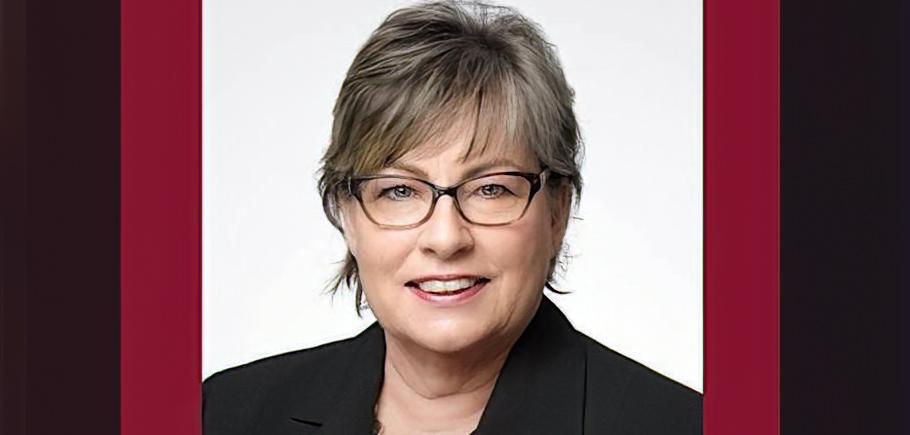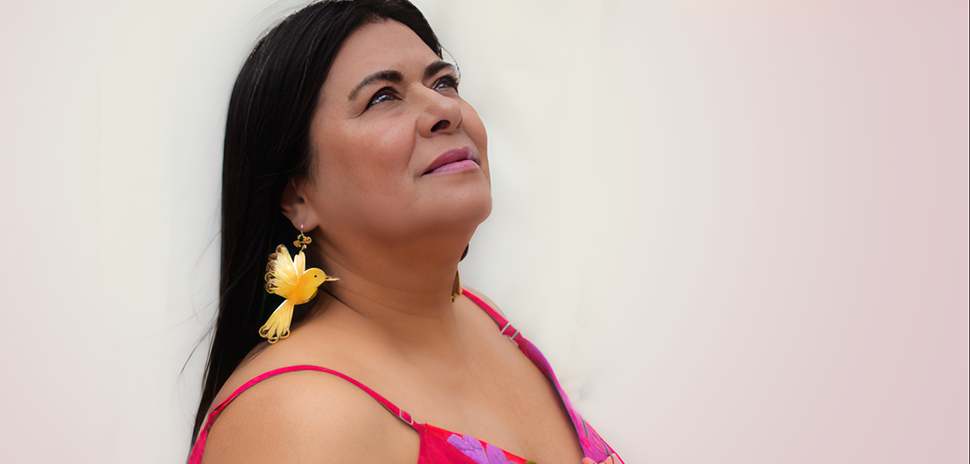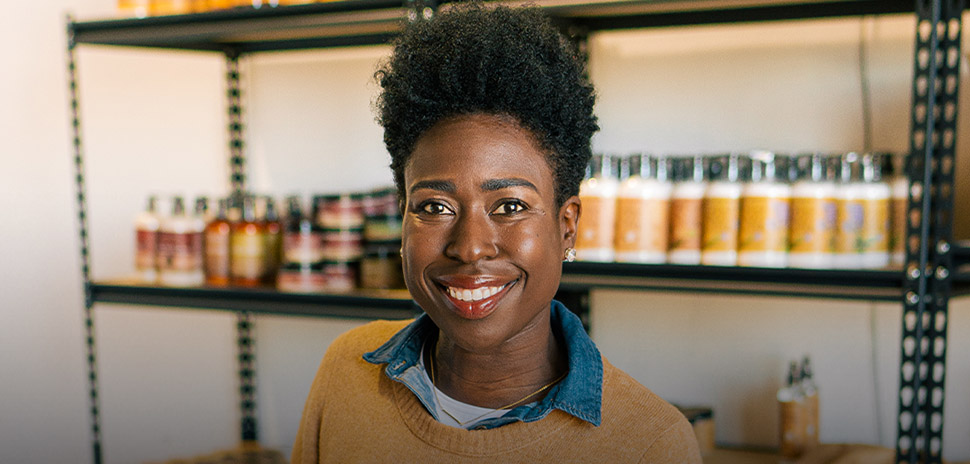While Amazon has come to define eCommerce, providing a ready marketplace for global brands to sell their products, a bigger percentage of sales are from independent sellers, most of whom run a small business.
“More than 60% of products sold on Amazon come from independent sellers — people are always surprised by that statistic,” said Natalie Angelillo, director of seller external relations.
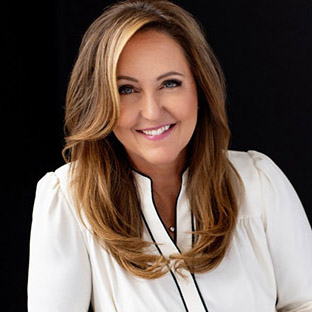
Amazon’s Natalie Angelillo
Angelillo leads an initiative called Sellers in Your Community — a program designed to help highlight the stories of the “little guys” — local small businesses who are finding success with Amazon in cities across the U.S. The program has visited sellers in nine cities so far this year, holding private roundtables to chat through successes and opportunities. In Dallas, she noticed a strong philanthropic spirit.
“We have sellers all over the country who are giving back and doing amazing things within their own communities — but that came through so clearly in Dallas.”
Combining passions and profits
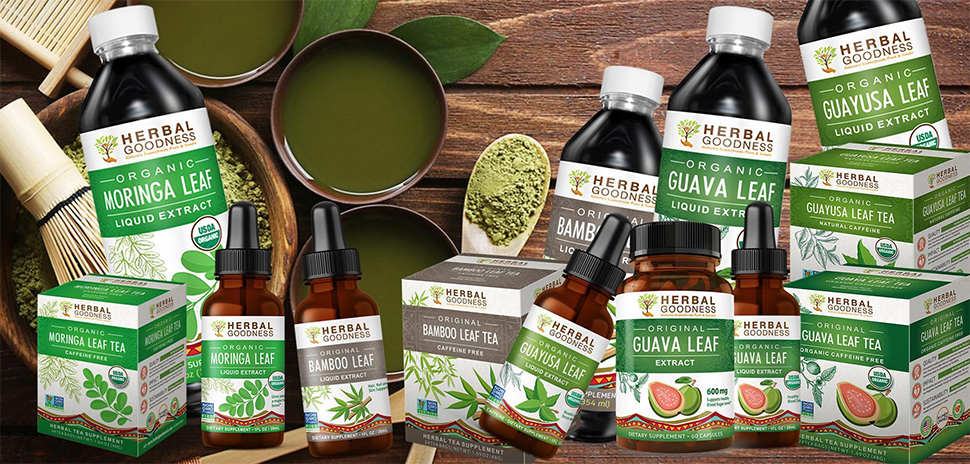
Herbal Goodness, founded by Unoma Okrafor, manufactures superfoods and herbal products to support healthy living—and impact lives. [Photo: Herbal Goodness]
Unoma Okorafor is both the founder of Herbal Goodness — a health and wellness company that manufactures organic health beverages & supplements—and president of WAAW Foundation. She started Working to Advance African Women to increase the pipeline of African women in STEM careers.
“I grew up knowing that education was the great equalizer. My mom was the first educated woman in her village, my dad grew up an orphan and education was the thing that opened doors for him.”
She moved to the U.S. from Nigeria, earning her Ph.D. in computer engineering and went to work for Texas Instruments in educational technology. Her journey to entrepreneurship started with a piece of fruit.
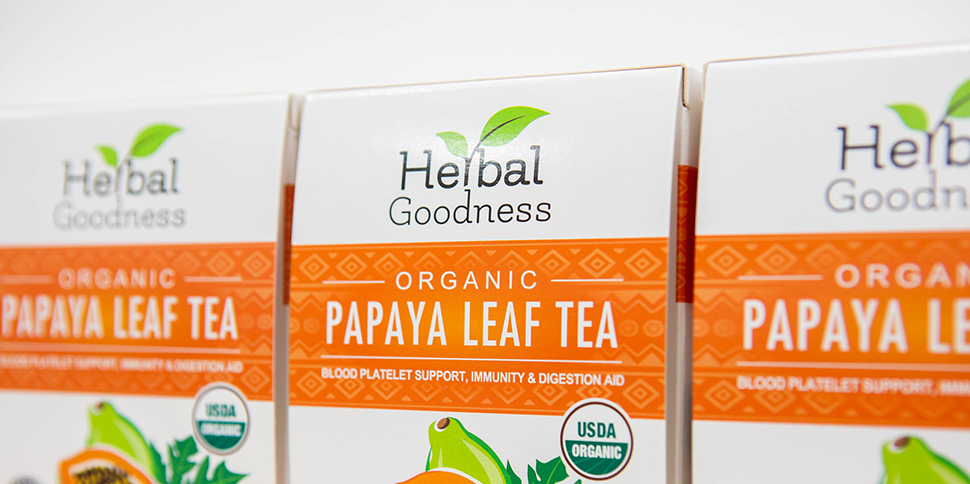
[Photo via Herbal Goodness]
“I thought, if I had grown up in the U.S. eating papaya, of course I would not love papaya — something just wasn’t right.”
In her childhood community, she says, everyone knew who grew the food they ate. Fruit in the U.S. tasted different and couldn’t be easily traced.
“I needed to right the wrong.”
But, as the mother of three children, the idea of starting a business was daunting. Amazon gave her the network, resources, and support to jump in, with minimal risk.
Enabling a vision with Amazon lending

Simpleaf Founder Femi Oyenekan [Photo via Simpleaf]
Femi Oyenekan, founder of Simpleaf Brands, is also an Amazon seller. He moved to the U.S. for college, when Amazon was still just selling books, but even then, he had the entrepreneurial bug, and knew that the company would play a role in manifesting his vision.
Simpleaf creates products that are made from naturally sourced ingredients, and have no parabens, alcohol, artificial fragrances, or other preservatives. Additionally, the company has a ‘zero-carbon footprint’ shipping promise and commitment to giving back – both locally and globally.
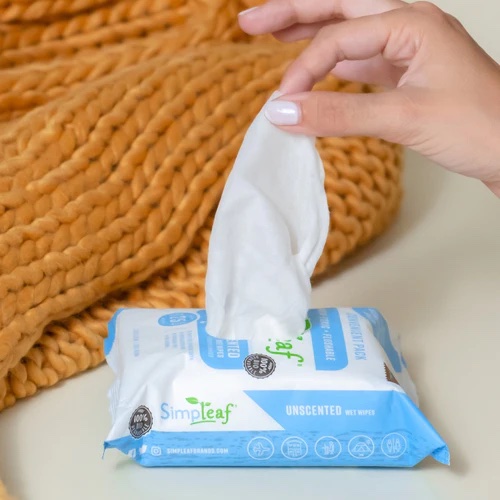
[Photo via Simpleaf]
He says selling through Amazon has not only exposed him to the right customers, but also helped him resolve a common issue for startups.
“One of the biggest problems I faced was how long to hold my inventory—needing to balance paying my distributors with being paid and fulfilling orders. Amazon lending definitely helped.”
It’s no secret that getting a business off the ground takes a lot of startup capital.
“Securing funding has historically been difficult for individuals without networks and from underserved communities,” said Angelillo.
Amazon serves as the bridge — in 2022, with the help of its lending partners, sellers accessed $1.4 Billion dollars through the Amazon lending program.
“We have a partnership with these sellers, we understand what they’re trying to build and are motivated to help them grow.’
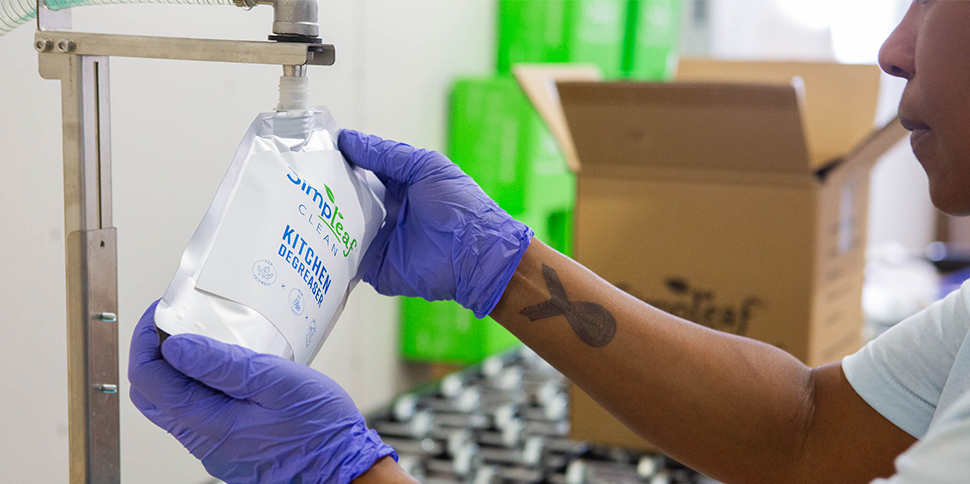
[Photo via Simpleaf]
Building a local presence through the global channel
“If you have a vision, Amazon is not the end point, it’s part of that journey that gets you started,” said Oyenekan. His vision is for Simpleaf to be the go-to company for people looking for high quality, environmentally friendly, hygiene products. Think: packages of disposable wipes that enable people to stay clean, without polluting the planet.
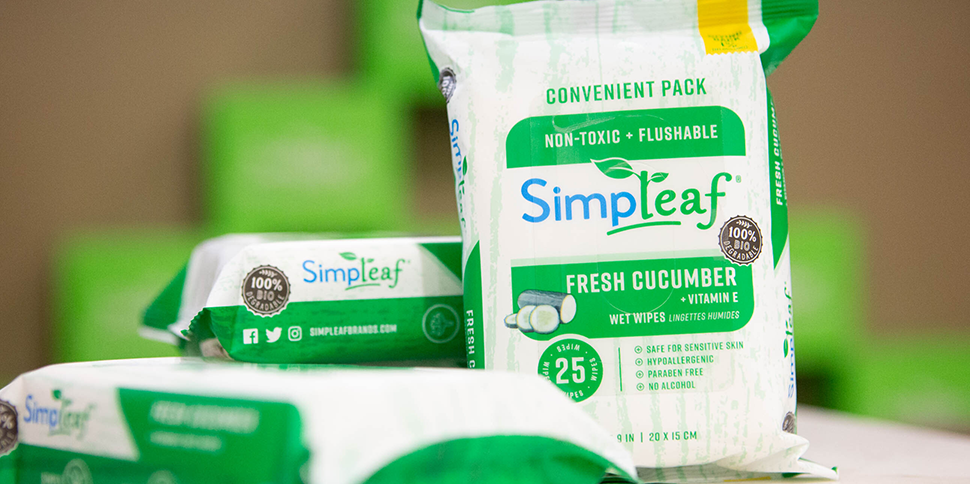
[Photo via Simpleaf]
Both Oyenekan and Okorafor are part of the BBA – the Black Business Accelerator—which, along with the Amazon Small Business Academy, provides resources and coaching.
 (look for the Small Business logo when shopping on Amazon to support independent sellers)
(look for the Small Business logo when shopping on Amazon to support independent sellers)
The skills Okorafor learned helped the founder open her first retail location in McKinney. It’s a story Angelillo says she hears frequently—a seller’s online storefront can provide the revenue and confidence to open a physical location.
It brings together eCommerce and traditional retail, known today as omnichannel—meeting customers where they want to transact. And though the word didn’t yet exist in marketing, that idea is how Jeff Bezos proved out his hypothesis to start Amazon in the mid-90s. The story goes that he fulfilled orders by personally buying and shipping books—creating a consumer expectation of immediacy and easy access, which is now lending itself to community and small business.
![]()
Get on the list.
Dallas Innovates, every day.
Sign up to keep your eye on what’s new and next in Dallas-Fort Worth, every day.










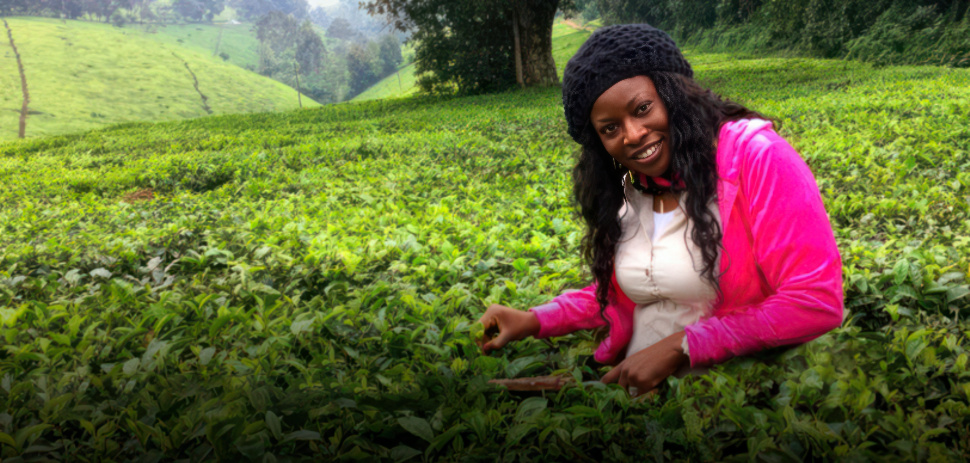
![From left: Ezi Negus, Okigwe Creations; Greer Christian, PureNRG Cycle; Awah Chai, Offworld Coffee; Kimberly Matthews, Holy Rollie Pastry Shop; and moderator Tarsha Hearns, The DEC Network. [Photo: The DEC Network]](https://s24806.pcdn.co/wp-content/uploads/2023/08/Panel-970x464.jpg)
